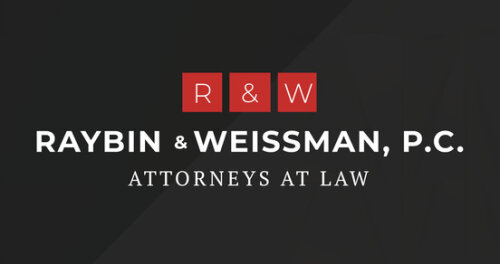Best Lawsuits & Disputes Lawyers in Nashville
Share your needs with us, get contacted by law firms.
Free. Takes 2 min.
List of the best lawyers in Nashville, United States
About Lawsuits & Disputes Law in Nashville, United States
Lawsuits and disputes in Nashville are governed primarily by Tennessee state law and local court procedures, with federal law applying when a case involves federal claims or parties from different states. Nashville is the county seat of Davidson County and hosts a range of trial courts that handle civil disputes - from small claims and landlord-tenant matters to high-value commercial litigation and personal injury suits. The litigation process typically moves through pleading, discovery, motion practice, settlement negotiations or alternative dispute resolution, and, if necessary, trial. Many cases settle before trial, but timely action and proper procedure are essential to preserve rights and achieve the best possible outcome.
Why You May Need a Lawyer
Not every dispute requires a lawyer, but legal representation is often vital in the following situations:
- Complex factual or legal issues such as commercial contract disputes, professional negligence, or employment litigation.
- High-value claims or where significant financial exposure exists.
- Cases involving complicated procedural rules, strict filing deadlines, or evidence preservation requirements.
- When you are facing litigation brought by an opposing party who is represented by counsel.
- Matters where statutory damages, punitive damages, or non-monetary relief such as injunctions are sought.
- Situations involving federal claims, constitutional issues, or diversity jurisdiction in federal court.
A lawyer provides legal analysis, prepares and files documents correctly, handles discovery and motions, negotiates or mediates on your behalf, and represents you at trial if needed. They also help protect procedural rights and ensure deadlines and technical requirements are met.
Local Laws Overview
Key aspects of local law and procedure relevant to lawsuits and disputes in Nashville include the following topics:
- Court structure - Civil matters in Davidson County may be heard in General Sessions Court for lower-value or summary matters, Circuit and Chancery Courts for more complex or higher-value civil cases, and the United States District Court for the Middle District of Tennessee for federal issues. Each court has its own filing requirements and local rules.
- Rules of civil procedure and evidence - Tennessee follows state rules of civil procedure and the Tennessee Rules of Evidence. These govern pleadings, discovery, motions, admissibility of evidence, and trial conduct. Federal court follows the Federal Rules of Civil Procedure and Federal Rules of Evidence.
- Statutes of limitations and deadlines - Every type of claim has time limits for filing. These statutes and deadlines differ by claim type and can include special notice requirements for certain claims. Missing a limitations period can result in losing the right to sue, so it is important to check deadlines promptly.
- Venue and jurisdiction - Proper venue means filing in the correct court and county. Local courts generally require that defendants be served with process according to state or federal rules. Personal jurisdiction depends on the defendant's contacts with Tennessee.
- Discovery and evidence preservation - Parties must comply with discovery rules, which allow each side to obtain relevant documents and testimony. Preservation of relevant evidence is critical; spoliation or failure to preserve evidence can negatively affect a case.
- Alternative dispute resolution - Mediation and arbitration are commonly used to resolve disputes outside of a courtroom. Some courts offer or require court-annexed mediation at certain stages. Parties can also agree to pursue arbitration under contract clauses.
- Small claims and simplified procedures - Lower-value disputes may be handled through small claims or simplified civil procedures that are faster and less formal. These forums are intended for parties who prefer a quicker resolution and often for those without lawyers.
- Local practice and administrative procedures - Each courthouse may have local administrative rules governing electronic filing, courtroom decorum, scheduling, and fees. The Davidson County Clerk and court clerks provide procedural guidance on filing and payment requirements.
Frequently Asked Questions
How do I start a lawsuit in Nashville?
To start a lawsuit you typically file a complaint or petition with the appropriate court and pay the required filing fee, then arrange for the defendant to be served with the summons and complaint according to procedural rules. Choosing the correct court and drafting the complaint to state your claims properly are important first steps. If you are unsure where to file, consult a lawyer or the court clerk for direction.
How long can I expect a lawsuit to take?
Case duration varies widely. Simple or small claims cases can resolve in a few months, while complex civil litigation may take a year or several years depending on discovery, motions, court schedules, and whether appeals are pursued. Many cases settle before trial, which can shorten the timeline.
How much will it cost to pursue or defend a lawsuit?
Costs depend on the case complexity, attorney fee structure, and discovery needs. Fees may include attorney hourly rates or contingency arrangements, court filing fees, costs for depositions, expert witnesses, and process servers. Ask potential lawyers about fee arrangements, retainer requirements, and estimated litigation costs during an initial consultation.
Do I need a lawyer or can I represent myself?
You may represent yourself in many civil matters, especially in small claims or straightforward cases. However, self-representation involves learning procedural rules, preparing filings, and handling courtroom procedures. For complex matters, high stakes, or when the opposing party has counsel, hiring an attorney is strongly advised.
What should I do if I am served with lawsuit papers?
Do not ignore the papers. Read them carefully to understand the deadline to respond. Create a file for all documents and contact an attorney promptly to evaluate options. If you cannot afford a lawyer, check for legal aid or low-cost advice clinics. Failure to respond may lead to a default judgment against you.
What evidence will I need to support my claim or defense?
Collect and preserve all relevant documents, communications, contracts, invoices, photographs, medical records, receipts, and any digital evidence. Identify witnesses and note key dates and events. Properly organizing evidence early helps with discovery and strengthens your case.
What kinds of damages can I recover?
Depending on the claim, recoverable damages can include compensatory damages for actual losses such as medical costs, lost wages, and property damage; consequential damages from foreseeable indirect losses; and in some cases punitive damages to punish wrongful conduct. Non-monetary remedies such as injunctions or specific performance may also be available in certain disputes. Applicable damages depend on the cause of action and statutory limits.
What is the statute of limitations for my claim?
Statutes of limitations vary by claim type and can be affected by special rules or exceptions. Different claims such as contract disputes, personal injury, property damage, and professional malpractice each have their own deadlines. Because missing a limitations period can bar your claim, consult an attorney or the court promptly to determine applicable deadlines.
When should I consider mediation or arbitration?
Mediation is useful when parties want to negotiate an amicable settlement with the help of a neutral mediator. It is often faster and less expensive than trial and can preserve relationships. Arbitration is a private process where an arbitrator decides the dispute and can be binding or non-binding depending on the agreement. Consider ADR early, particularly where confidentiality, speed, or specialized adjudication is desirable.
How do I find a qualified lawyer in Nashville?
Start with local resources like the Nashville Bar Association and the Tennessee Bar Association, which offer lawyer referral services. Many attorneys provide initial consultations, which help you evaluate experience, fee structures, and whether the lawyer is a good fit. Ask about trial experience, recent case results in similar matters, and client references. If cost is a concern, explore legal aid organizations, pro bono clinics, or limited-scope representation options.
Additional Resources
These local and state organizations and court offices can help you find information or assistance:
- Davidson County court clerks and clerk offices for filing procedures and local court rules.
- United States District Court for the Middle District of Tennessee for federal cases arising in Nashville.
- Tennessee Administrative Office of the Courts for statewide court information and self-help resources.
- Tennessee Rules of Civil Procedure and Tennessee Rules of Evidence for procedural and evidentiary guidance.
- Tennessee Bar Association and Nashville Bar Association for lawyer referral services and professional resources.
- Legal Aid Society of Middle Tennessee and the Cumberlands and other local legal aid organizations for income-eligible clients.
- Court-annexed or community mediation services and local dispute resolution centers for mediation and ADR options.
- County sheriff or licensed process servers for service of process questions and arrangements.
- Local law libraries and self-help centers for forms and procedural instructions available at courthouses.
Next Steps
If you are facing a dispute or considering filing a lawsuit, take these practical steps:
- Preserve evidence - gather and protect documents, receipts, communications, photographs, and any other relevant materials.
- Note deadlines - identify any statutes of limitations or court filing deadlines that may apply and act quickly to avoid losing rights.
- Organize information - prepare a clear timeline of events, a list of witnesses, and copies of contracts or agreements.
- Seek legal advice - schedule a consultation with a qualified Nashville attorney to review your options, possible outcomes, and likely costs. Use local bar referral services or legal aid if you need help finding affordable counsel.
- Consider ADR - evaluate whether mediation or arbitration might resolve the dispute faster and at lower cost.
- Follow court procedures - if you must file, make sure you meet court formatting, filing, and service requirements and retain proof of service.
- Communicate carefully - avoid posting details about the dispute on social media and follow your lawyer's guidance about public statements.
Taking timely, organized steps will help protect your legal rights and position you to make informed decisions about resolving your dispute in Nashville.
Lawzana helps you find the best lawyers and law firms in Nashville through a curated and pre-screened list of qualified legal professionals. Our platform offers rankings and detailed profiles of attorneys and law firms, allowing you to compare based on practice areas, including Lawsuits & Disputes, experience, and client feedback.
Each profile includes a description of the firm's areas of practice, client reviews, team members and partners, year of establishment, spoken languages, office locations, contact information, social media presence, and any published articles or resources. Most firms on our platform speak English and are experienced in both local and international legal matters.
Get a quote from top-rated law firms in Nashville, United States — quickly, securely, and without unnecessary hassle.
Disclaimer:
The information provided on this page is for general informational purposes only and does not constitute legal advice. While we strive to ensure the accuracy and relevance of the content, legal information may change over time, and interpretations of the law can vary. You should always consult with a qualified legal professional for advice specific to your situation.
We disclaim all liability for actions taken or not taken based on the content of this page. If you believe any information is incorrect or outdated, please contact us, and we will review and update it where appropriate.
Browse lawsuits & disputes law firms by service in Nashville, United States
Nashville, United States Attorneys in related practice areas.









